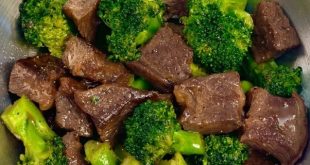Eating corn every day can be part of a healthy diet, but there are some considerations to keep in mind. Here’s a detailed explanation:
Eating corn every day can be part of a healthy diet, but there are some considerations to keep in mind. Here’s a detailed explanation:
Nutritional Profile
-
- Fiber: Corn is a good source of dietary fiber, which supports digestive health and can help maintain healthy blood sugar levels.
- Vitamins: It provides vitamins such as B vitamins (including folate), which are important for energy production and cell function.
- Minerals: Corn contains minerals like magnesium, potassium, and phosphorus, which support various bodily functions.
- Antioxidants: It has antioxidants like lutein and zeaxanthin that can be beneficial for eye health.
Potential Benefits
-
- Digestive Health: The fiber in corn can aid in digestion and prevent constipation.
- Energy: The carbohydrates in corn provide a good energy source.
- Heart Health: Some studies suggest that the fiber and antioxidants in corn may contribute to heart health.
Possible Concerns
-
- Nutrient Variety: Relying solely on corn may limit your intake of other essential nutrients found in different vegetables and grains. A varied diet ensures a more comprehensive nutrient profile.
- Digestive Issues: Corn contains cellulose, a type of fiber that some people might find difficult to digest, potentially causing bloating or discomfort.
- Calories and Carbohydrates: Corn is relatively high in carbohydrates and calories. Consuming large amounts may impact blood sugar levels, especially for those with diabetes or those managing their weight.
Preparation Methods
-
- Healthier Choices: Opt for boiled or grilled corn rather than corn products with added fats, sugars, or excessive salt. These can be more nutritious options.
- Portion Control: Moderation is key. Eating a moderate amount of corn as part of a balanced diet is generally fine.

Overall Recommendation
Eating corn daily can be beneficial, but it’s important to balance it with other vegetables, fruits, whole grains, and proteins to ensure you get a full range of nutrients. Monitoring portion sizes and preparation methods can also help you maintain a healthy diet.

 Gistfox Your News Window To The World.
Gistfox Your News Window To The World.





